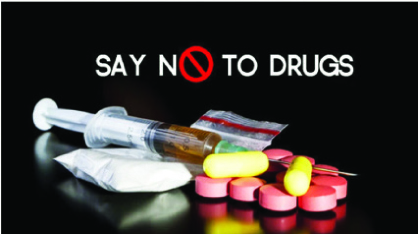
The ManicaPost

Administration and management of schools has to transform in order to match the nature of juvenile delinquency now common in schools.
Against this background, introduction of random searches of school bags can deter learners from smuggling drugs into the schools.
The culture of drugs is brought into schools by students who frequently engage in drug abuse.
Guidance and counselling
The updated curriculum framework (2015-2022) made the teaching and learning of guidance and counselling compulsory in all schools. However, there exists a thin line between teaching guidance and counselling and practicing it. The modern world schools now require full time school counsellors to provide the essential service to learners, parents and teachers.
Guidance, counselling and life skills help the students to be empowered in challenging situations. For example a child who finds it difficult to cope with adolescence needs to be empowered to transform with ease.
Various skills like leadership, responsibility, communication, intellectual capacity, self-esteem, interpersonal skills and others extends its maximum capacity if it is practiced effectively among the teens.
Parental involvement
Studies have shown that although friendships rank high in adolescents’ priorities, this is balanced by parental influence. Parents have significant control over what the children follow on mass media.
Mass media, if not properly controlled, creates room for drug abuse in students. Mass media refers to the distribution of impersonal information to a wide audience, such as what happens via television, newspapers, radio, and the Internet.
With the average person spending over four hours a day in front of the TV (and students averaging even more screen time), media greatly influences social norms. Students learn about what is true, what is important, and what is expected and make choices from what they experience on mass media. They should be encouraged to emulate good behaviours through their parents and those around them.
Flexible curriculum
The schools can be boring places for students, especially when they cannot let the energy in them out. It is also important to note that recreational and adapted sports are part of the school curriculum.
Regular exposure to sports through recreational classes is not only good for a child’s body, it’s also beneficial for their mind. Physical activity improves general mood and wellness in students experiencing anxiety and depressive disorders.
Physical and mental fitness is linked to improvements in self-esteem, social awareness, and self-confidence, which are all essential for empowering the lives of young people with special needs.
Providing a physical outlet may help students reduce or cope with anxiety, stress and depression. Interaction and involvement with other students will also help to give students a sense of accomplishment and confidence. The schools should allow adolescents to participate in sporting and Visual Arts activities of their choices so as to avoid turning into drugs.
Punishment
Drug abuse is a form of juvenile delinquency that is criminal. Students who engage in drug abuse should be brought before the law and tried in juvenile courts. Schools can work together with the police to make arrests and demonstrate to would-be offenders that anyone who engages in similar behaviour will be is arrested.
However, suspension, withdrawal and expulsions are measures of punishment that schools appear to have forgotten about. Drug abuse is a serious offence and no kid gloves should be used in dealing with culprits.
Models
Resource persons in the form of the police and the health departments’ personnel can be called in to deliver detailed lectures on the effects of drug abuse on the health and social development of learners. The police are better placed to share the consequences of breaking the law, as opposed to getting the same message from teachers.
Positive labelling
The teachers can limit the possibility of engagement in drug abuse through use of positive labels. The Labelling Theory suggests that drug abuse is caused by labelling students as morally inferior. The students internalise the label and acts according to that specific label. Teachers are therefore expected to use positive labels in their interaction with learners.



